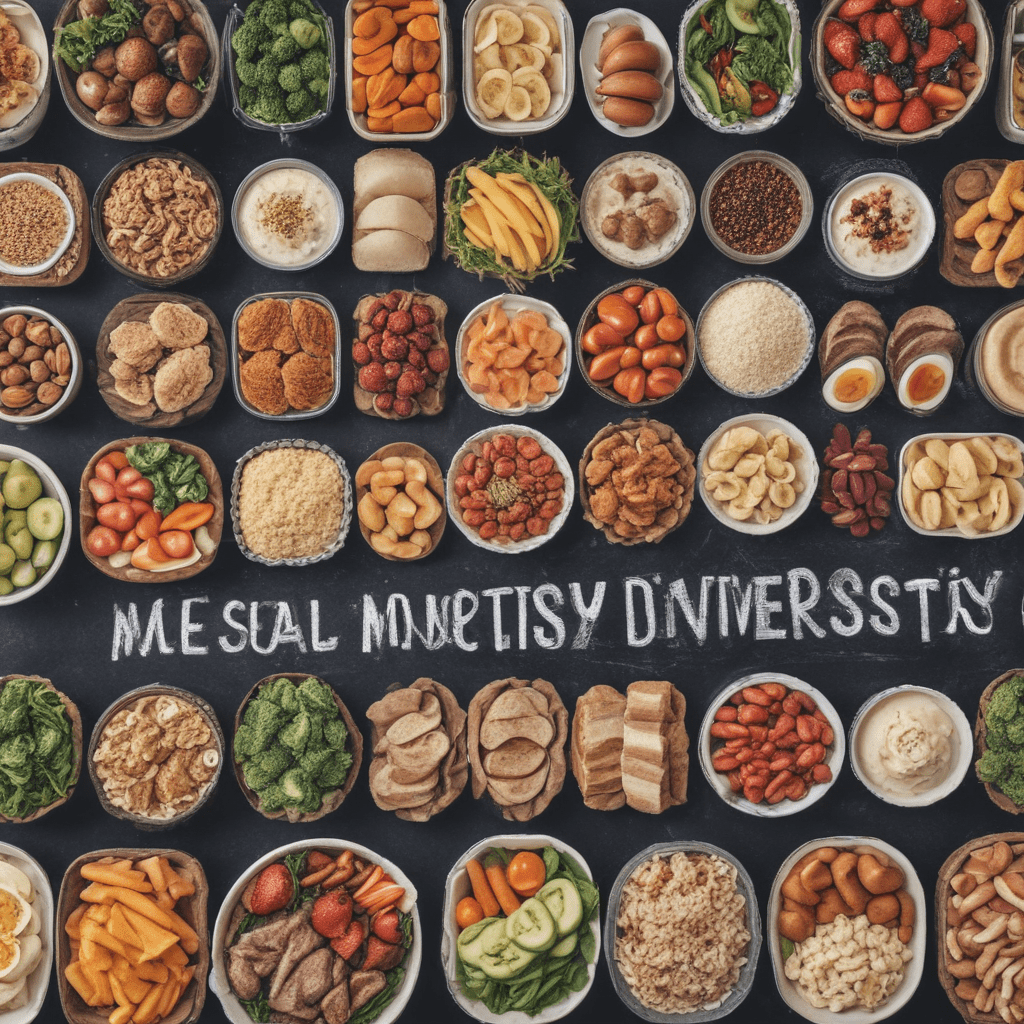
The Role of Protein in a Healthy Pregnancy Diet
Pregnancy is a time of incredible change and growth, both for the mother and the developing baby. To support this growth, it's crucial to ensure a well-balanced diet that provides all the essential nutrients, including protein. Protein plays a vital role in various aspects of pregnancy, from fetal development to maternal health.
1. Importance of Protein During Pregnancy
Protein is a vital building block for the development of the baby's organs, tissues, and muscles. It also contributes to the formation of the placenta and supports fetal brain development. Additionally, protein provides essential amino acids that the mother's body needs to support the increased demands of pregnancy, such as increased blood volume and metabolism.
2. Recommended Protein Intake for Pregnant Women
The recommended protein intake for pregnant women increases throughout pregnancy. According to the National Academies of Sciences, Engineering, and Medicine, the recommended daily intake is:
- First trimester: 71 grams
- Second trimester: 75 grams
- Third trimester: 85 grams
It's important to note that these are general recommendations, and the individual needs may vary depending on factors such as weight, activity level, and medical conditions. It's always best to consult with a healthcare professional to determine the appropriate protein intake for your specific needs.
3. High-Protein Foods for Pregnancy
There are a variety of protein-rich foods that pregnant women can incorporate into their diet. Some excellent sources of protein include:
- Animal sources: Lean meat, poultry, fish, eggs, and dairy products.
- Plant-based sources: Beans, lentils, tofu, nuts, seeds, and whole grains.
By including a variety of these protein sources in your diet, you can ensure that your body is getting the essential amino acids it needs during pregnancy.
4. Benefits of Protein During Pregnancy
Consuming adequate protein during pregnancy offers numerous benefits for both the mother and the baby. These benefits include:
- Supporting fetal growth and development: Protein provides the building blocks for the baby's organs, tissues, and muscles.
- Maintaining a healthy pregnancy weight: Protein can help pregnant women maintain a healthy weight by promoting satiety and reducing cravings.
- Boosting energy levels: Protein is an essential source of energy, which is crucial during pregnancy when energy demands are increased.
- Improving mood: Protein can help regulate blood sugar levels, which can help stabilize mood and reduce mood swings.
5. Risks of Insufficient Protein Intake During Pregnancy
Insufficient protein intake during pregnancy can have adverse effects on both the mother and the baby. These risks include:
- Low birth weight: Babies born to mothers who consume inadequate protein during pregnancy may have a lower birth weight.
- Premature birth: Insufficient protein intake has been linked to an increased risk of premature birth.
- Maternal health problems: Pregnant women who don't consume enough protein may experience health problems such as fatigue, anemia, and increased risk of infections.
6. Protein Supplements for Pregnancy
While it's best to get protein from whole food sources, there may be instances where pregnant women need additional protein. Protein supplements can be a helpful option in these cases. However, it's important to choose a high-quality supplement and consult with a healthcare professional before starting any new supplement during pregnancy.
7. Tips for Increasing Protein Intake During Pregnancy
Here are some tips for incorporating more protein into your pregnancy diet:
- Start your day with a protein-rich breakfast: Include eggs, Greek yogurt, or protein smoothies in your morning routine.
- Snack on protein-rich foods: Opt for nuts, seeds, hard-boiled eggs, or cottage cheese as healthy snacks.
- Add protein to your meals: Include lean meat, poultry, fish, or beans in your main meals.
- Consider protein shakes or bars: If you're struggling to meet your protein needs, protein shakes or bars can be a convenient option.
8. Sample High-Protein Pregnancy Meal Plan
Here's a sample high-protein meal plan for pregnant women:
Breakfast: Scrambled eggs with whole-wheat toast and avocado
Lunch: Chicken salad with mixed greens and a quinoa salad
Dinner: Salmon with roasted vegetables and brown rice
Snacks: Greek yogurt with berries, almonds and seeds, or protein smoothie
9. Importance of a Balanced Diet
While protein is crucial during pregnancy, it's essential to maintain a balanced diet that includes all the essential nutrients. Include plenty of fruits, vegetables, whole grains, and healthy fats in your diet alongside protein sources.
10. Conclusion
Protein plays a vital role in a healthy pregnancy. By ensuring adequate protein intake through a balanced diet and, if necessary, protein supplements, pregnant women can support their own health and the development of their growing baby.
Frequently Asked Questions (FAQs)
1. How much protein do I need during pregnancy?
The recommended protein intake for pregnant women varies depending on the trimester. Consult with a healthcare professional to determine the appropriate amount for your specific needs.
2. What are some good sources of protein during pregnancy?
Excellent protein sources include lean meat, poultry, fish, eggs, dairy products, beans, lentils, tofu, nuts, seeds, and whole grains.
3. Do I need protein supplements during pregnancy?
While most pregnant women can get enough protein from their diet, protein supplements may be helpful in some cases. Consult with a healthcare professional for guidance.
4. What are the risks of insufficient protein intake during pregnancy?
Insufficient protein intake during pregnancy can lead to low birth weight, premature birth, and maternal health problems.
5. What are some tips for increasing protein intake during pregnancy?
Start your day with a protein-rich breakfast, snack on protein-rich foods, add protein to your meals, and consider protein shakes or bars.

